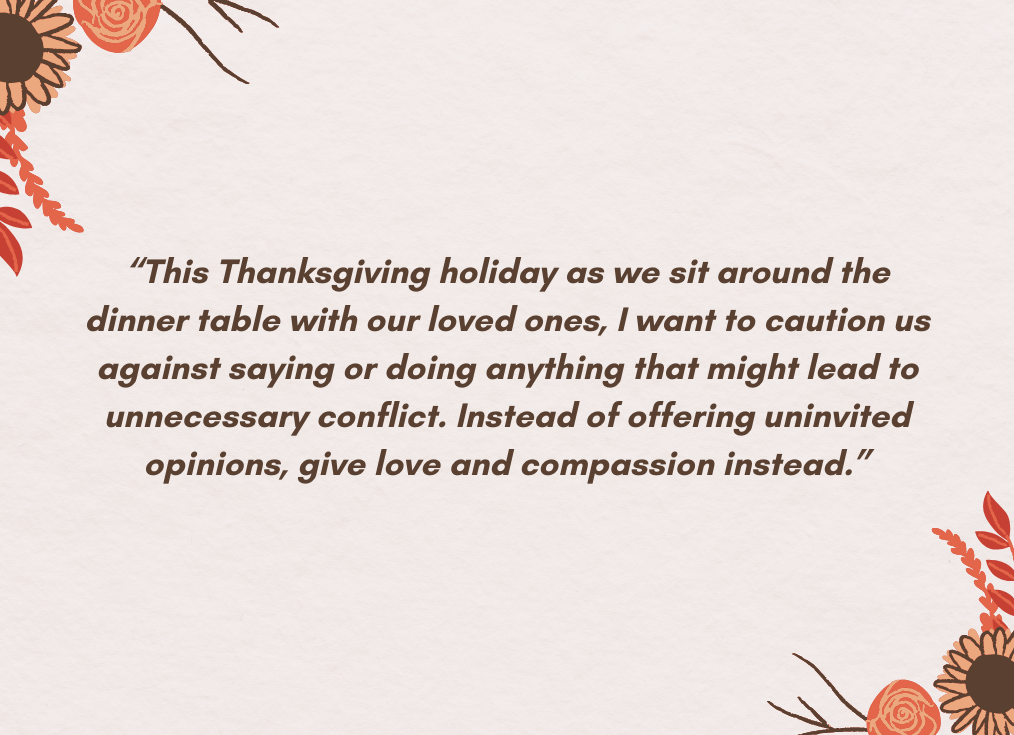Thanksgiving

Growing up in Texas with two older brothers meant that my mom was a regular at HEB. By the time we had gotten to be teenagers, the amount of food that was consumed in our home was incredible. She’d go to the store with a long list of chips, deli meats and cereals—and by the time we got out of there, we had filled two shopping carts. I remember once that she went to the store in the morning to do a weekly run, but by the afternoon we had eaten everything but my dad’s diet bars. When she learned that we had consumed what would have been our dinner, she went into the other room and cried. “I have a pack of wild animals living in my house!” she declared. And we were!
When Thanksgiving came around, the dinner table became a literal feeding frenzy. When our three other male cousins arrived for the holiday, the women of our family came out of the kitchen ready to do battle: they brought out turkeys and casseroles, potatoes and pies—with gravies and dinner rolls adorning each setting. But prepared as they were, their arsenal of food was no match for the power of the teenage stomach. After we had eaten through much of the buffet, we’d haggle and barter each other for beans and biscuits.
…
Perhaps this is why I was never especially surprised by the events of this week’s Torah portion, Toldot. The paarsha describes two twin brothers, Jacob and Esau—the latter being the eldest, who we’re told was a skilled hunter. Once when Esau returned from an especially grueling hunt, he found Jacob back at home cooking a pot of red lentils. Famished, Esau demanded that his brother give him some, only for Jacob to insist that he must first sell him his birthright. Only after Esau did so with an oath did his brother relinquish the soup, thus beginning a family conflict that would last for decades.
I remember studying this parsha with some congregants at my former synagogue, and one of the older women in the group commented, “Nobody would ever sell their birthright for some soup.” Oh yes, they would! After all, the characters in the Torah are only human.
Human beings are motivated by their bodies, their attitudes and their environment. We might be the dominate species on earth, but we’re inherently flawed. Propelled by greed and the desire to thrive and survive, we’re oftentimes insensitive to the harm that we can cause others. Likewise, we impulsively make decisions based off what might feel good in the short term but can lead to years of disfunction.
This Thanksgiving holiday as we sit around the dinner table with our loved ones, I want to caution us against saying or doing anything that might lead to unnecessary conflict. Instead of offering uninvited opinions, give love and compassion instead. And if you have teenage boys coming over, you’ve been warned!
Shabbat Shalom
Rabbi Jonathan Hodson
Congregation Agudas Achim
